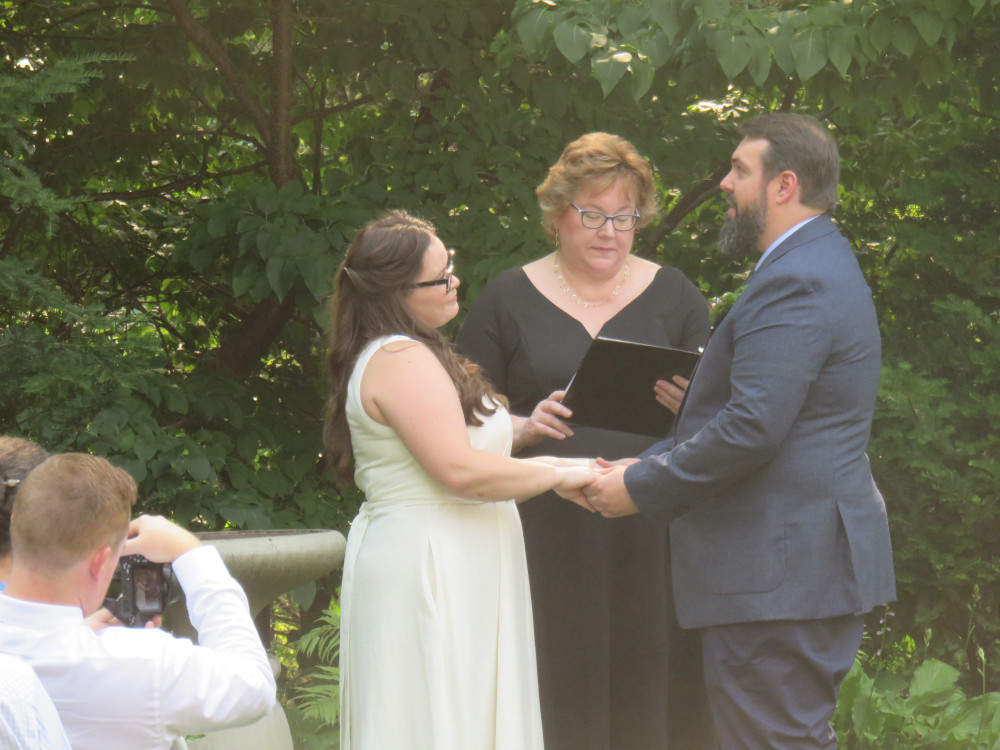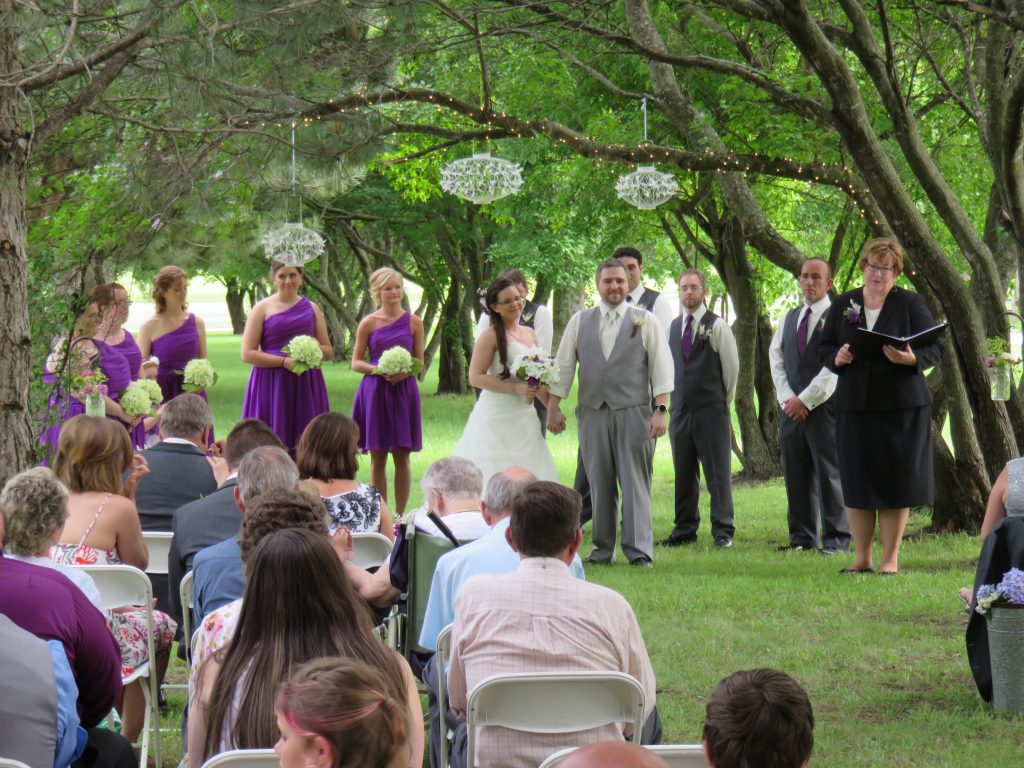Five Important Questions to Ask Wedding Celebrants
There are five important questions to ask wedding celebrants when selecting the person to create and offer your ceremony. This article has an even more exhaustive list, but these five will give you the most critical information. While it can feel a bit intimidating engaging with celebrants or officiants, they are there to help you have the wedding you envision. They are ready and willing to provide the information you need to decide if you want to work with them.

The five important questions to ask wedding celebrants
- Are you available on our wedding date? Do you serve our venue? These are very practical questions that should be asked up front. If the answer to either is “no”, you don’t need to invest more time with that celebrant.
- Are you legally credentialed to officiate marriages in our state/county/city? Another simple but essential question. You want your ceremony to legally marry you. Each state, and sometimes more local jurisdictions has different laws defining who can legally marry people.
- Do you offer the non-religious (or particular type of religious) ceremony we are interested in? As participation in organized religion drops, more people want a secular or non-religious ceremony. Celebrants who are affiliated with a religion will often not offer a secular ceremony. Or they will slip in god references, often without thinking about it. You can have the kind of ceremony you want if you ask for it.
- Will we be able to have input to the ceremony? How will that happen? Some celebrants do not provide a draft of the ceremony to couples before the wedding day. If you want to participate in the creation of your ceremony, or want reassurance that it will meet your expectations, ask how this can happen.
- If we want to have a rehearsal, will you attend and run it for us? Rehearsals are a great way to reduce stress and make everyone comfortable before the wedding day. If you plan to hold a rehearsal you’ll want to know if your celebrant will come and run it for you.
Important Questions to Ask Yourselves
While those are the five important questions to ask wedding celebrants, there are equally important questions to ask yourselves. After meeting with a prospective officiant or celebrant ask yourselves: Do we feel comfortable with this person? Will we be able to ask questions of them? Do we think they will respect our wishes and input for the ceremony? Do they provide a ceremony contract that documents our agreement?
Obtain answers to these five important questions to ask wedding celebrants. Follow with the questions to ask yourselves and you’ll be on your way to selecting your ideal wedding celebrant.

